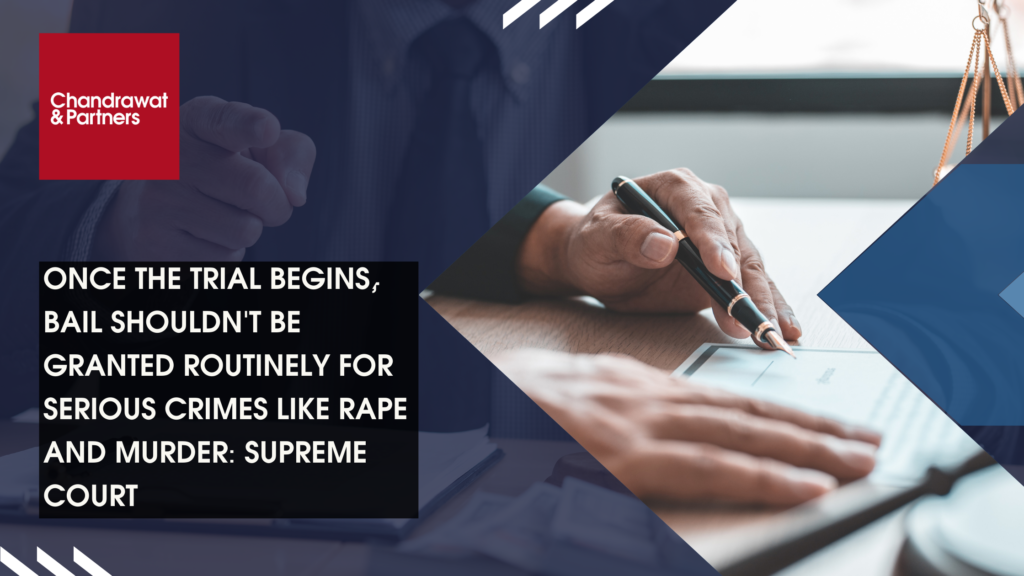Home > Recent Judgements > Once The Trial Begins, Bail Shouldn’t Be Granted Routinely For Serious Crimes Like Rape And Murder: Supreme Court
DEC 04, 2024

BACKGROUND
In the case between X Versus State of Rajasthan, the case involved an appeal filed by a rape victim challenging the High Court’s order granting bail to the accused based on alleged discrepancies in the victim’s FIR and Section 164 of the code of criminal procedure (“CrPC”) statement. The Supreme Court hearing the appeal condemned the take-off of the High Court on the matter and expressed concern over the phenomenon of grant of bail that is just a day or two before the victim’s appearance in the witnesses’ box or disclosing of some slip on the bum’s evidence after the witness has already made his or her deposition. The Court noted that once a trial commences, it should terminate as soon as it is right to do so and any undue postponement does not arise through the Agency. It remarked that the victim’s witnesses evidence inconsistencies could not as a rule violate bail especially since the victim had not yet performed her witness duties. The Supreme Court, though affirming the High Court’s order, directed the trial court to hear and determine the case in three months.
ISSUES
- Whether the High Court erred in granting bail to the accused in a rape case based on discrepancies in the FIR and Section 164 CrPC statement of the victim?
- Whether the practice of granting bail after the framing of charges or after examining the victim’s oral evidence is appropriate in serious offences like rape, murder, and dacoity?
- Whether the alleged discrepancies in the victim’s statements should have been a valid ground for granting bail before the victim’s examination in court?
- Whether granting bail to the accused before the victim’s examination impacts the pending trial, especially in appreciating the oral evidence of the victim?
JUDGEMENT
The Supreme Court criticized the High Court’s ruling that admitted a bail application of a person accused of rape due to inconsistencies in the FIR filed by the victim and his Section 164 CrPC statement, stating that there is absolutely no room for considering bail applications at the trial stage when trial has commenced except for instances of unnecessary delays that are not instigated by the accused. The Court however did not rescind the bail but ordered further conditions requiring the defendant to stay out of the victim’s village, report a new address to police, and ensure that the case is taken on priority and completed within a period of three months.
OBSERVATION
The Supreme Court remarked that in heinous crimes such as murder, rape, and dacoity, once the stage of the trial commences with the prosecution beginning the examination of witnesses, the Trial Courts and High Courts should usually not consider bail applications except in situations where the trial has been greatly protracted due to causes that the accused is not responsible for and which may violate his right to a fair trial. The Court did not endorse the High Court’s position of granting bail because of the victim’s inconsistency during examination under Section 164 CrPC, which the Court said should not be the basis to warrant the grant of bail, especially when the victim is yet to testify. It stressed that it is inappropriate to grant bail during a trial on the basis that only part of the victim’s testimony has been considered. Even though the Supreme Court did not decide to cancel the bail, it provided measures about the safety of the victim, including prohibiting the accused from entering her village and putting a lot of pressure on the trial to be heard in three months.
For more information or queries, please email us at
enquiries@chandrawatpartners.com




